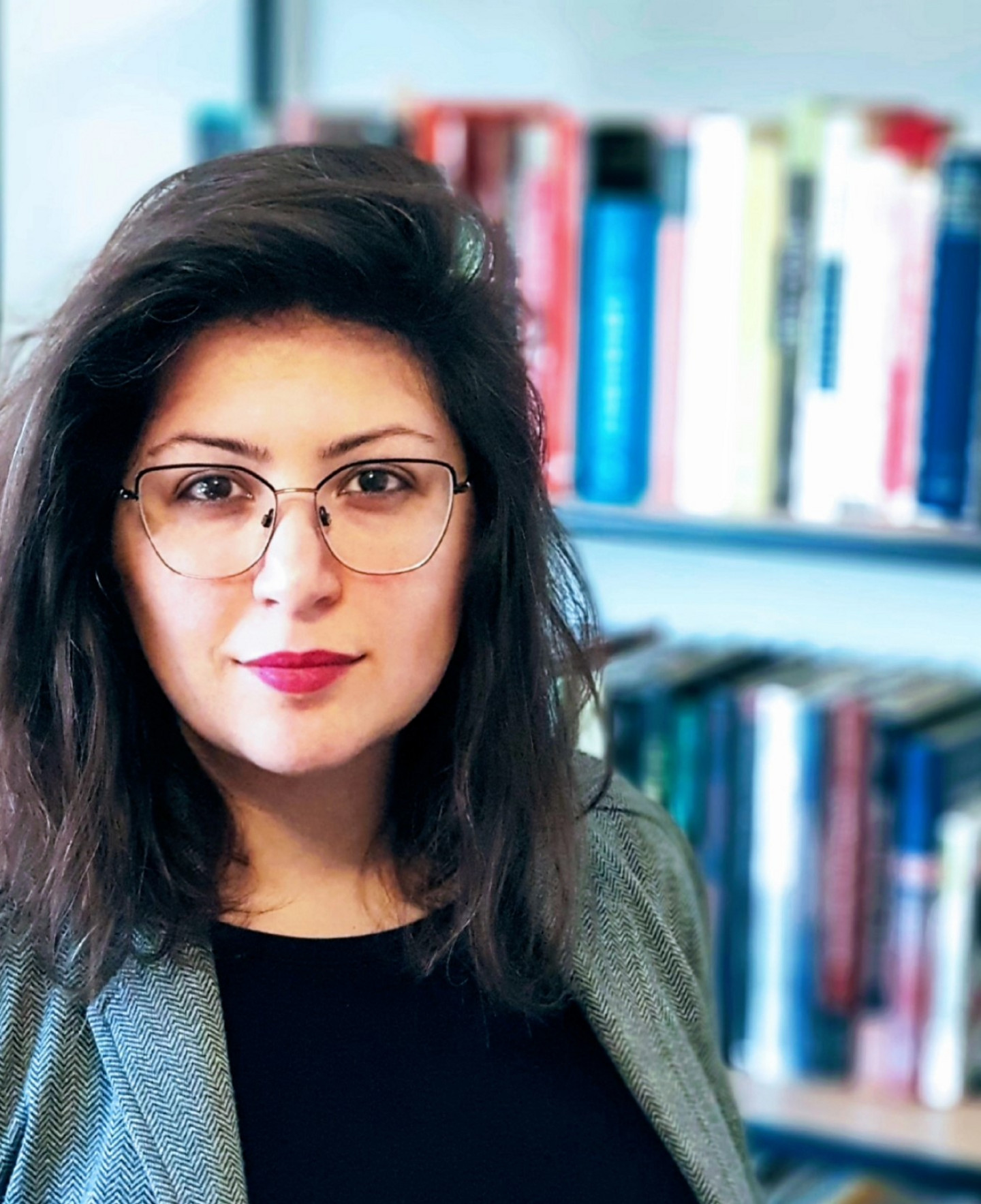
Mahshid Mayar is an Americanist whose research focuses on literary and cultural historical topics within the frame of transnational and Asian American Studies. Mahshid Mayar’s current research and teaching interests lie in 21st-century protest poetry, silence and silencing, new empire studies, historical childhood studies, 19th-century cultural history of the U.S., and the history of race and racialization. Mahshid’s current book project interrogates the politics and poetics of silence and silencing through “erasure poetry” by Asian- and Indigenous American poets. Her first book Citizens and Rulers of the World: The American Child and the Cartographic Pedagogies of Empire (University of North Carolina Press 2022) is the winner of the Shelley Fisher Fishkin Prize for International Scholarship in Transnational American Studies (awarded by the American Studies Association). Furthermore, Mahshid has numerous publications including the edited volume Silence and Its Derivatives: Conversations across Disciplines (Palgrave Macmillan 2022) as well as essays and articles for the JTAS, EJAS, Amerikastudien/American Studies, Oxford Bibliographies, and so on. Mahshid is currently working on three book projects: aside from her second-book/Habilitation project “Erasure: Poetics, Politics, Performance,” Mahshid is also co-editing an essay collection on American Studies and noise (with Sabine N. Meyer and Stefan Benz) and a companion on U.S. Empire that she co-edits with Mischa Honeck for de Gruyter. Mahshid has held fellowships at Georgetown University, Washington, D.C., the International Youth Library, Munich, and Amherst College, Massachusetts.
Erase Till You Arrive: Versioning the Scripts of Empire in Erasure Poetry
From fast fashion to comic books, from machine guns to gentrification schemes, and from the 0-1 binarism of computer codes to the global span of the US penal landscape, we live in an age that has grown increasingly comfortable with what Mel Bochner identified in 1967 as “the serial attitude.” In my talk, and in engaging with the main theme of the AAAS 2023, I project Bochner’s reading of the serial attitude onto the documental sub-genre of poetry known as “erasure poetry.” Exemplified by the works of Philip Metres, Layli Long Soldier, Niina Pollari, Solmaz Sharif, and others, erasure poetry is the outcome of such subtractive textual/visual techniques as black-out, white-out, or strike-through of a “source text,” be it older works of fiction or poetry, the transcript of political speeches, documents of legal or historical significance, or newspaper articles. Erasure, esp. the 21st-century examples of it that fall into the sub-category of protest poetry, layers/versions discourses on such historical issues as settler colonialism, the neoliberal iterations of US empire, and so on. In my talk, I interrogate this experimental, documental art-form as the inevitable outcome of a critical serial attitude to discourses, a textual practice of versioning the scripts of US empire that bridges and separates an “original” (however we may define and understand the original) to and from its subsequent versions by the same or subsequent authors.

